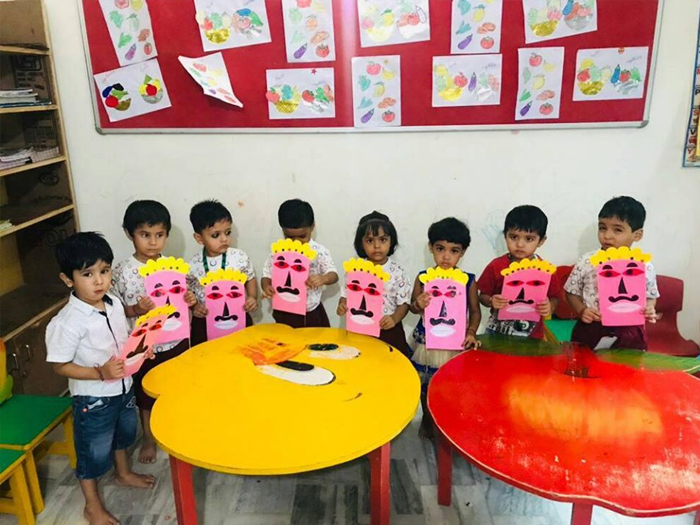Krishna Kids Curriculum
Our Pre-school curriculum is based on a learning theory called “Constructivism”– a ‘hands on, minds on’ theory – focusing on experiential learning.
We have designed a child-centric curriculum, which emphasizes on the Seven Domains of Learning:
- Physical Development
- Mathematical Understanding
- Language and Literacy
- EVS /Concepts
- Personality and Social Development
- Creative Development
- Music and Movement
Benefits of Our Curriculum
- Constructivism & Multiple Intelligence concentrates on learning how to think and understand, so children don’t rely on repetitive memorization.
- Children create organizing principles which they can take with them to other learning systems, as the skills acquired through a constructivist approach are transferable. This is because engaging children’s creative instincts develops their ability to express knowledge through a variety of ways.
- By ground learning activities in an authentic, real-world context, constructivism stimulates and engages children to learn to question things and apply their natural curiosity to the world.
- Constructivism promotes social and communication skills by creating a classroom environment that emphasizes collaboration and exchange of ideas, which helps children to learn and articulate their views.
- Children learn to effectively work as individuals as well as in groups.
Specialized Learning Centres
- Tender Feet (Toddlers) Tiny tots hopping and smiling in their classroom stamp their signature smiles and baby steps. Keenly learning and exploring.
- Junior Lamps (Nursery) The Nurseries have ignited a constructive & inquisitive mind of their own. Happily and cheerfully mingling with their mentor and peers.
- Smart Kids (PP I) A young constructive mind with good cognitive development and great motor skills enjoy their hands on minds on approach learning technique.
- Master Minds (PP II) The genius in the making, are ready to take on the world as disciplined learners.
All classrooms are arranged as ‘learning centers’, with well-defined spaces, which are conducive for:
- Exploring and experimenting
- Problem solving
- Decision Making
- Role Playing
- Imaginative use
- Discovering their personal interests
The different kinds of activities that are done in these learning-centres include:
- Building and Construction
- Role Play
- Art
- Writing
- Mathematics and Science
- Reading and Listening
- Music
- Sensory Play





